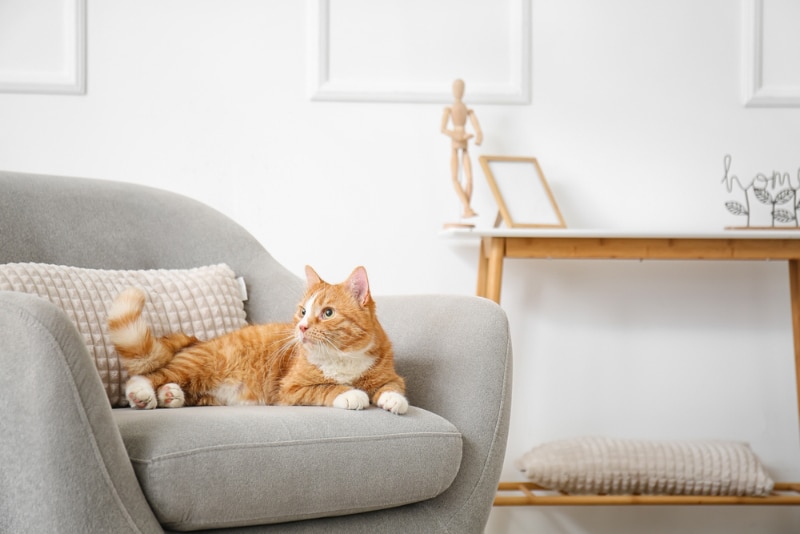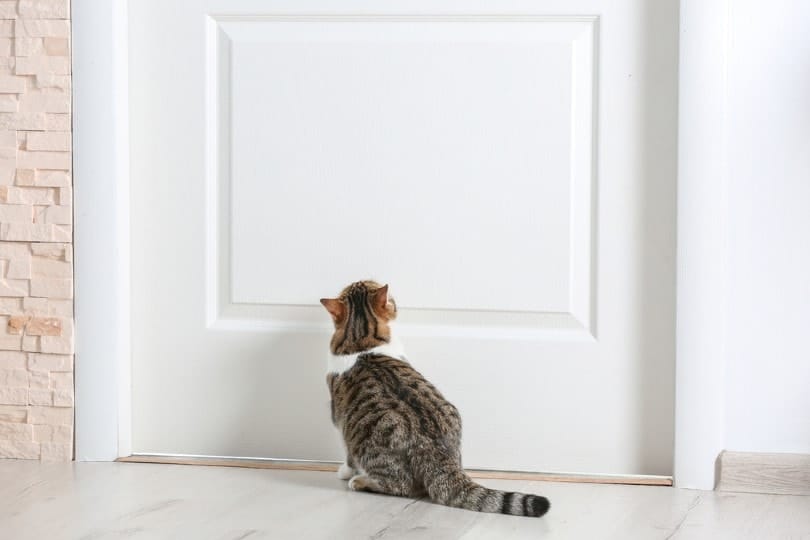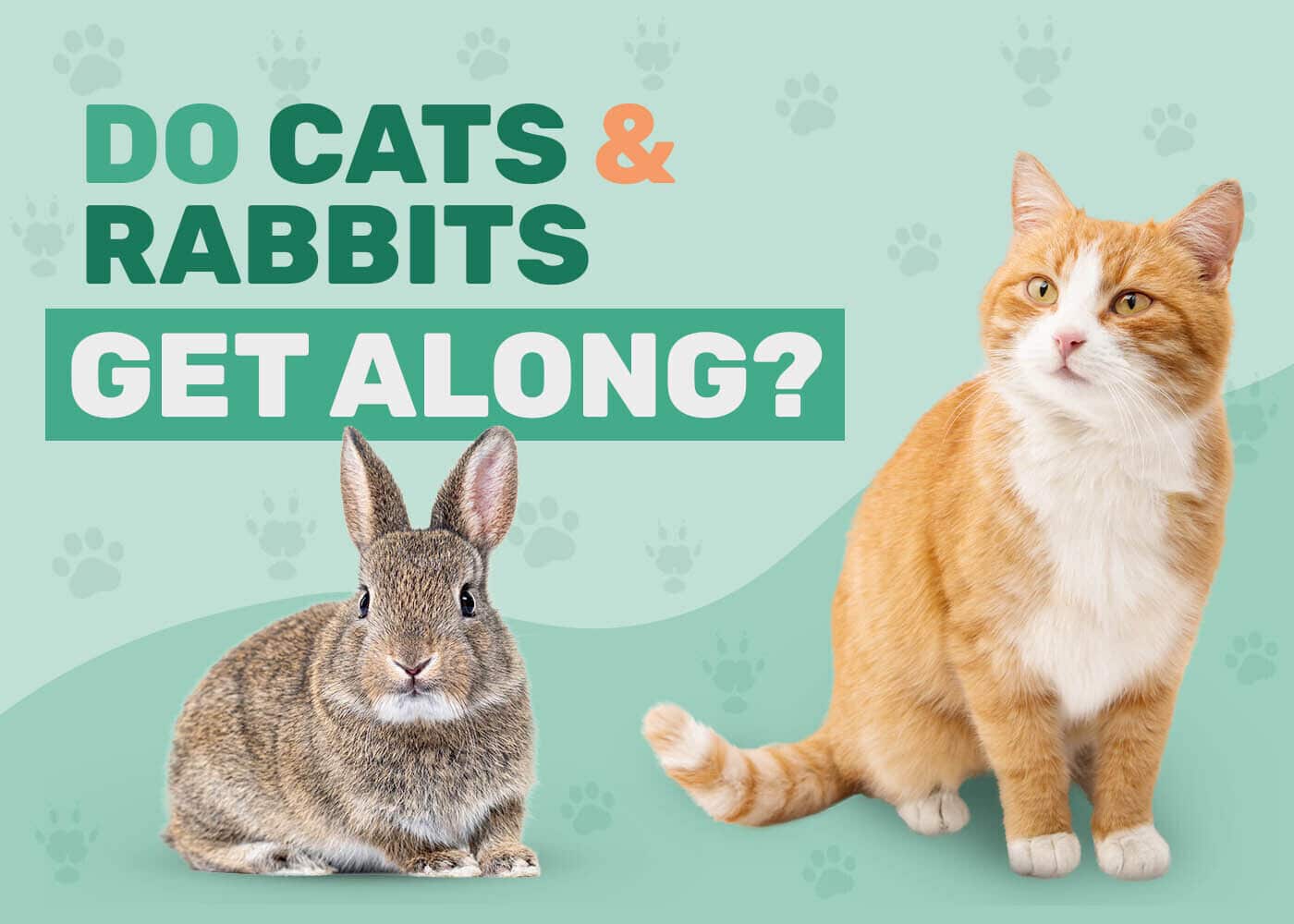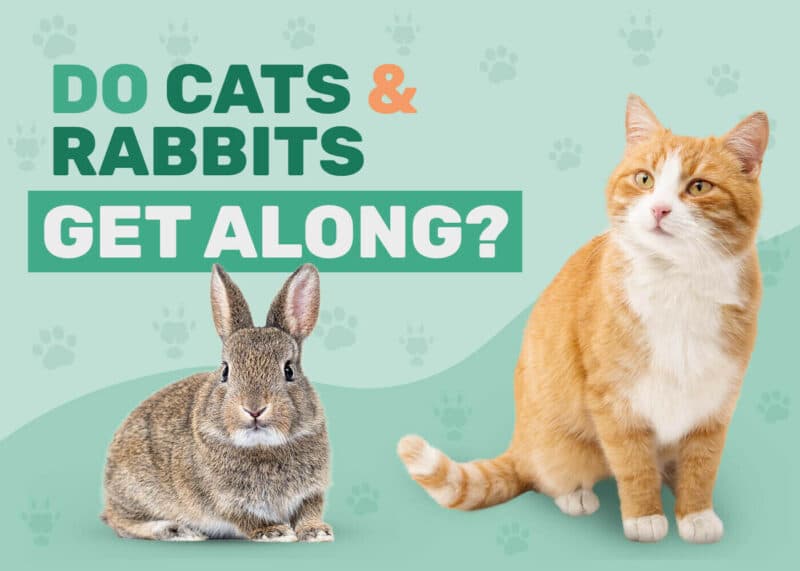If you’re an animal lover, then you may always be seeking out new critters you can bring into your home. While cats are popular pets, rabbits are surprisingly popular pets as well and are sought after by exotic pet enthusiasts all over the world.
Between these pet-owning homes, there must be at least some overlap, but will cats harm rabbits if given the chance? The fact of the matter is that it is best to not have cats and rabbits coexist in the same shared space, as there’s a very high risk of injury with predator-prey interactions, and your rabbit will also be exposed to unnecessary stress.

Can Cats and Rabbits Get Along?
The short answer to this question is no. If you’re thinking about a household where your cat is free to roam and interact with a rabbit wherever they feel like it, that’s not possible. As predators, cats will instinctively view a rabbit as a potential prey, not another pet.
Even if your cat decides to “play” with your rabbit – they could seriously hurt the rabbit in the process. It is important to note that what we describe as cats playing is in fact cats practicing their hunting skills. Interestingly, indoor-only cats are more inclined to this sort of behavior 1.
A cage or hutch doesn’t guarantee the safety of your rabbit as your cat can easily take a swipe at your rabbit through the bars or spacing of the enclosure. Likewise, it becomes very difficult to juggle maintaining roaming access for both pets simultaneously in a household.
Another factor to consider is that rabbits can easily become stressed in the presence of a cat, even if they cannot physically see the cat. The scent of a predator alone is sometimes enough to cause distress in a rabbit. Therefore, housing these pets together raises considerable ethical concerns for the well-being of these animals.
A cat isn’t entirely safe from a rabbit either. Female rabbits in particular can be quite territorial and can injure a curious yet aloof kitten that ventures too close to their enclosure.
Though examples of the two animals coexisting on the internet definitively exist, it is prudent to remember that a short clip or a photograph on the internet isn’t an accurate representation of the complexity involved in housing these pets together.
Essentially, the risk of having them interact is so great that both animals would need to be confined in their own area of the house with their own possessions at all times, and you would have to ensure that despite there being a boundary between them that you meet all of their social and interaction requirements while at the same time ensuring that at no point in time is the separation breached by either animal.
If this sounds impractical, it’s because it is, and therefore, it’s best to house your cat with non-prey animals. Alternatively, a fully indoor cat can be housed with rabbits as long as your rabbits are housed outdoors in their hutch (assuming the conditions outside allow for such a setup).

Will Cats Kill Rabbits?
Whether or not a cat kills your rabbit depends on many factors. However, there’s no denying that a cat can easily injure a rabbit to the point where quick medical intervention is necessary, and if the intervention is delayed, a rabbit could definitely succumb to their injuries from an encounter with a cat.
What Precautions Should I Take?
If you’re planning on keeping a rabbit and a cat, there are some precautions you should take to keep everyone safe. Your cat and your rabbit should never be able to access the same space. To do this, it is best to house your cat indoors all the time, and house your rabbits in a safe, predator proof outdoor hutch. All other scenarios of cohabitation, while plausible, are too dangerous and impractical to implement on a long term basis.
Your cat has the capacity to harm your rabbit through the bars of their hutch if they escape. Therefore, ensuring that your cat cannot escape is absolutely key in attempting this setup.
Make sure to provide both pets with adequate amounts of care and attention beyond just meeting their physical needs – both these species require interaction and socialization and rabbits in particular are very prone to becoming less manageable if they’re not interacted with. In addition, both pets will require other forms of enrichment too.
For your cat, this means providing them quiet, safe spaces, maybe even high up on a shelf or cat tree, and your rabbit with an appropriately sized outdoor enclosure that offers an appropriate diet, clean water at all times, and safe and comfortable spaces to rest.

In Conclusion
Cats have been known to attack rabbits due to their predatory instincts. No matter how well you think you know your cat, there is always the possibility of your cat harming your rabbit if left in a position to do so, especially if left unattended together.
The most practical way to house cats and rabbits together is by keeping your cat indoors all the time, and your rabbit outdoors. This is understandably a big step but it is also the only practical, safe long term solution for housing a predator and a prey species together.











